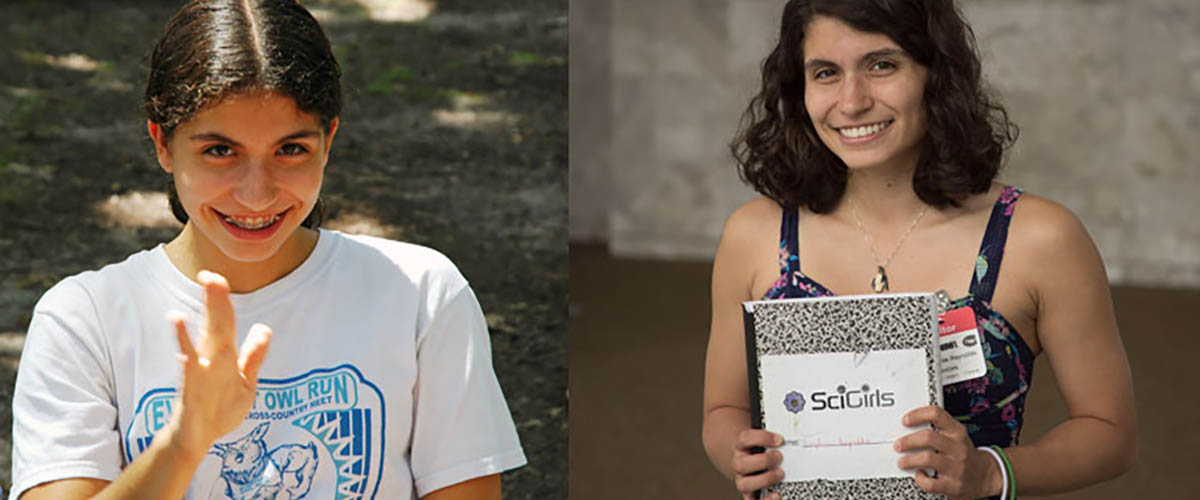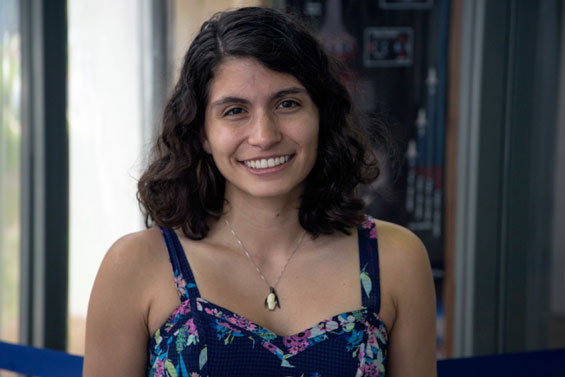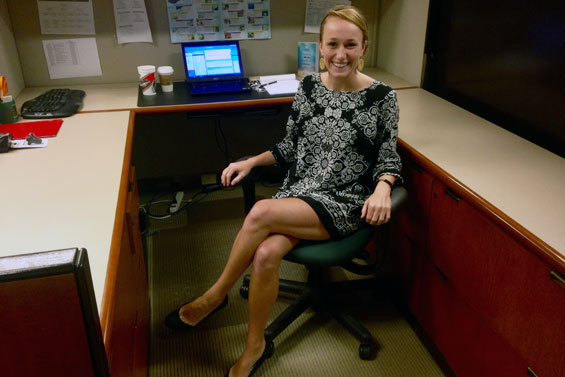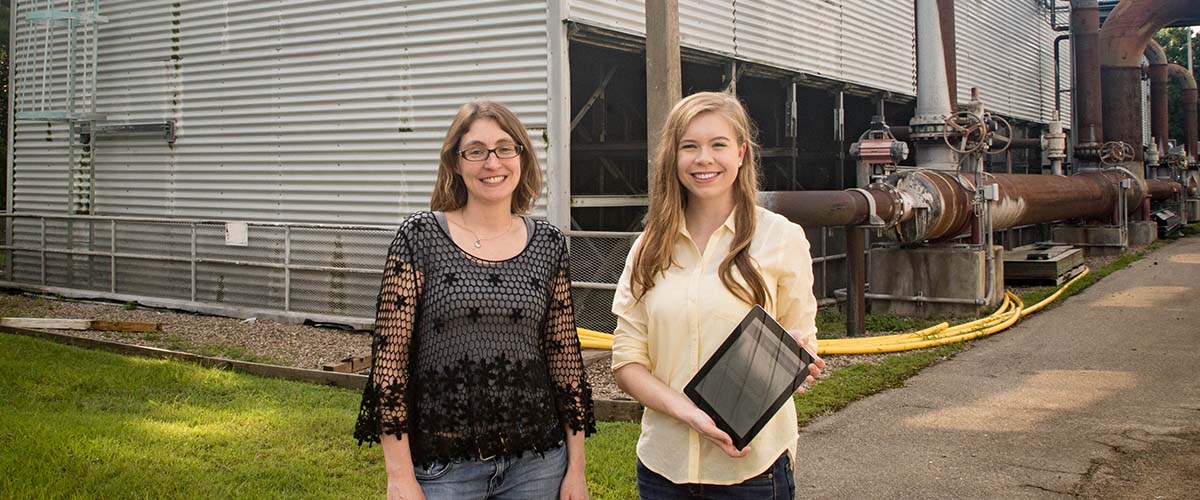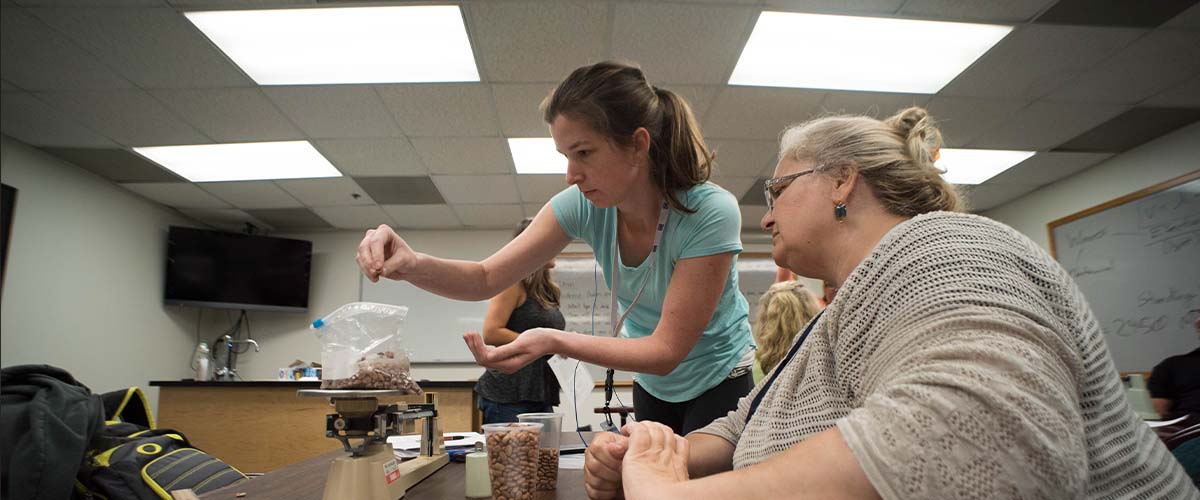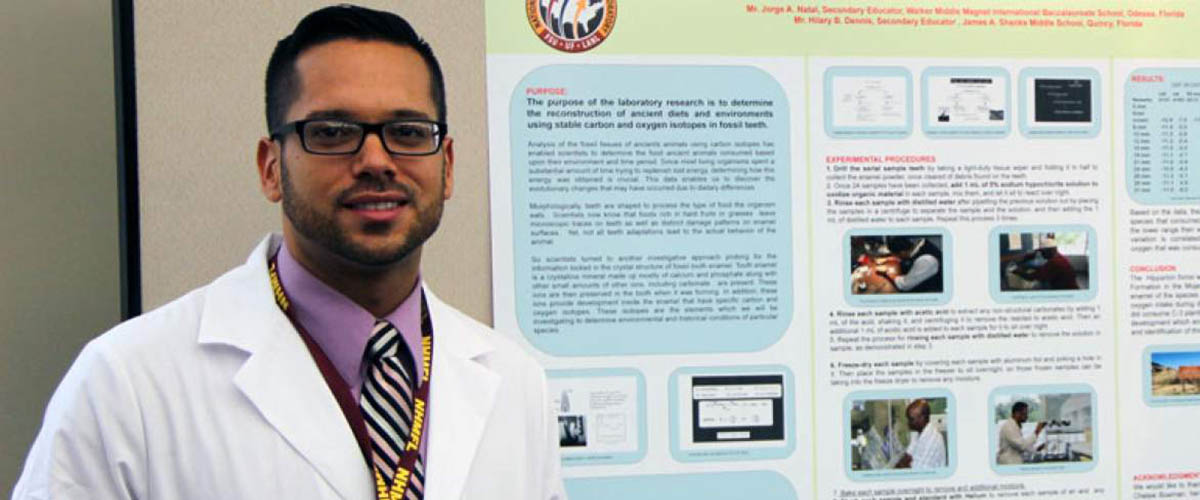What immediate impact did SciGirls have on you?
Immediately after SciGirls you have such a rush to be involved in every aspect of science that you can. You want to do every other camp that relates to science and read every book there is about how you can change the world. It sparks a curiosity that is hard to get rid of.
What long-term impact did SciGirls have on you?
The camp instills a sense of thinking and exploring that you wouldn't get at a camp that stayed at the same place for the entire week and included both genders. I think it develops a level of understanding that women can (and will) do anything they want and that a gender gap should not stop them. I think that because I went to SciGirls and worked with other girls to discover some of the coolest experiments science has to offer, I have a better understanding of how women not only are, but need to be, involved in the STEM careers. By surrounding yourself with strong, smart women, you are filled with the "girl power” vibe and it's a vibe that everyone should have running through their body.
In what ways did SciGirls prepare you for your higher education and training as a scientist?
I think SciGirls helped prepare me to ask all kinds of questions. It sparked a curiosity that I don't think has left me (and I hope it never does!). I have found that in college, if you don't ask the questions, it is sometimes really hard to find the answer. There is sometimes a stigma related to asking questions because it means you don't have all the answers. But I guarantee that if you have a question in class, 95 percent of the other people in the class have the same exact question. You have to be comfortable with speaking out in front of others and making sure you are doing everything you can to learn all there is to learn. I think SciGirls helped me with that.
What advice would you give to this year's SciGirls about pursuing science?
If you have even the slightest inclination to do anything in the science field whatsoever, TRY IT! I think that sometimes the hardest thing to do in life is to take a chance or a risk and not know the outcome. Sometimes you have to look at life not as a science experiment, but as something that doesn't have a definitive answer. I think that by being women in STEM careers we are taking a chance. But I am so glad that I took that chance and I hope you will be too!
What obstacles have you faced in your science education?
It definitely is a little hard to be a minority in your own field. I have noticed it more so in college, and actually even more in this last year. I think that as the classes get more specific, it becomes more apparent that I am one of the only women in the room. But I think that you just have to be comfortable in your own skin and know that you have worked just as hard (if not harder) to be where you are and that you completely deserve to be there. Plus it's always nice when you are the only one in a room full of men that knows what's going on and how to attack the problem!
What do you find most exciting about science?
I really enjoy that most (if not all) questions in science have an answer. I think it is so rewarding to spend hours and hours and hours (sometimes even days) working on one problem to finally get an answer. It is a really great reward for all of your hard work that you put in to that one problem. And then the next day, you start on another problem!
What are your plans for the future?
I still have about two and a half years left at UF to finish my industrial engineering degree. I plan to use my remaining summers in internships to decide what I want to do with my degree. I am very interested in humanitarian logistics, which is the study and organization of people and the efficiency of a human process. A good example would be disaster relief. The Red Cross has industrial engineers who come in after a disaster hits and determine the best way to allocate funds and volunteers. I am also interested in working in healthcare. There are many improvements that could be made in healthcare in order to streamline the process of patient care, while not losing the patient/doctor relationship.
Stephanie Reynolds
Stephanie Reynolds was a SciGirl the summer before she entered high school. Now 22, the newly minted California Institute of Technology grad will enter the Georgia Institute of Technology this fall to pursue a PhD in chemical engineering.
What are your favorite SciGirls memories?
I remember trying to burn dirt. We were supposed to come up with an experiment of some sort, and so we asked, "Does dirt burn?" I think our group was called, "the pyromaniacs." We gathered different kinds of dirt — clay and fine, grainy dirt — and then we just tried to light it on fire with matches. I don't think it worked very well, but we were trying for quite a while. I thought maybe because there was plant life or something in it that might burn. But it turns out there is not enough organic matter in dirt to actually set it on fire.



